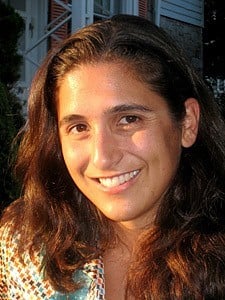Parashat Korach tells of the mayhem and violence that often accompany political strife. After Korach the Levite challenged Moses’s leadership and Aaron’s priestly authority, a test was devised: God’s choice for priestly service would become known after Korach and Aaron each offered sacrificial incense. The divine response was unmistakable. The earth “opened her mouth and swallowed” alive Korach and his household. The rebel’s followers, in turn, were immolated in a fire “sent forth from God.”[1]
After witnessing these florid retributions, the Israelites gathered against Moses and Aaron, menacing them with the eerily prescient accusation that they had “brought death upon God’s people.” Outraged at the nation’s defiance, God charged Moses and Aaron: “Remove yourselves from this community, that I may annihilate them in an instant!”[2]
A plague soon stalked the camp, quickly consuming tens, then hundreds, then thousands. But neither Moses nor Aaron heeded God’s command to separate from the people. Instead, in an audacious mirroring of the Israelites’ defiance, Moses commanded Aaron to disobey God, prepare the sacrificial incense “and take it quickly to the community and make expiation for them.” These were tense, frightening moments for the brothers, and terror strains through Moses’s frantic aside to Aaron: “For wrath has gone forth from the Lord: the plague has begun!”[3]
The constancy of Moses’s and Aaron’s devotion to this nation, which God has repeatedly threatened to destroy, makes it somewhat difficult to recognize the remarkable nature of their actions. Moses and Aaron did not try to save themselves—as God had commanded—but rather assumed the defense of a nation that had just rejected them. What is more, the curative is fraught with danger: Aaron must prepare the mercurial incense, whose offering had only just brought about Korach’s demise and, more poignantly, the earlier deaths of Aaron’s sons, Nadab and Abihu.
But Aaron did not flinch. Instead, he “ran to the midst of the congregation, where the plague had begun….” Offering incense for the people’s expiation, Aaron “stood between the dead and the living until the plague was checked.” The outsized muscularity of body and spirit that this effort demanded is reflected in a midrash that tells of Aaron restraining the Angel of Death against its will.[4]
The kind of devotion and mettle required to stand “between the dead and the living” remains extraordinary—and rare. In those regions facing today’s most serious health challenges, doctors are shockingly scarce. The World Health Organization estimated in 2006 that one in four African-trained doctors leaves the continent for work in wealthier regions, with the workforce shortage believed to only have worsened since then.[5] In Sierra Leone, a country of over 5 million people, there are only 75 state medical doctors and 25 medical specialists; and in Liberia, population 3.5 million, there are a total of 122 doctors. In Malawi, there are two doctors and 56 nurses for every 100,000 people; in Mozambique the ratio is three doctors and 20 nurses per 100,000.[6] By contrast, in those wealthier countries comprising the Organization for Economic Cooperation and Development (OECD), there are, on average, about 310 doctors for every 100,000 people.[7]
There are, however, individuals who choose to stay and serve. People like Arthur Wright, Sierra Leone’s only ear, nose and throat specialist who trained in Europe before returning to his country. Acknowledging that many of his colleagues left during Sierra Leone’s civil war, Dr. Wright explains he cannot, because: “This is my country. I have to give service to my people.”[8] And there are those like the indomitable Denis Mukwege, who, after training in Burundi and France, has worked in the Democratic Republic of Congo for decades, attending to the thousands of women who have been mutilated and traumatized by the rampant sexual violence that is used as a tool of war in his country.[9]
But to dig out from this crisis, the world cannot just depend on the mettle and devotion of extraordinary people who make extraordinary efforts. The parashah informs us that after Aaron “stood between the living and the dead” he returned to Moses, who waited by the Tabernacle’s entrance.[10] One can imagine Aaron, wending his way through the 14,700 dead and dying to collapse in his brother’s arms—fatigued from effort, unburdening himself of horror.
Those supportive, powerful arms are needed today too. We need robust services to assist doctors who serve these communities; more medical schools to incubate and support local talent; and policies that will both incentivize medical workers to serve these regions and staunch the “brain drain” from them.
The outsized humanity of individuals like Drs. Mukwege and Wright should not distract from the impossible scale of their task. It is up to us—those who stand on the side of the living—to provide them the comforting embrace of a brother.
[1] Numbers 16:32,35.
[2] Numbers 17:6,10.
[3] Numbers 17:11.
[4] Rashi, Numbers 17:13.
[5] “West Africa: When There is No Village Doctor.” IRIN, 4 Feb. 2009. http://www.irinnews.org/Report.aspx?ReportId=82755
[6] Ibid.; “Malawi: Health Worker Shortage a Challenge to AIDS Treatment.” IRIN, 6 Nov. 2006. http://www.irinnews.org/Report.aspx?ReportId=61598; AP, “Doctor Shortage Adds to Africa’s AIDS Woes.” USA Today, 24 May 2007. http://www.usatoday.com/news/health/2007-05-24-africa-doctors_N.htm; “Liberia Battles Crippling Shortage in Health Workers.” Mail & Guardian Online, 14 Jan. 2009. http://www.mg.co.za/article/2009-01-14-liberia-battles-crippling-shortage-in-health-workers
[7] OECD,“Disparities in health expenditure across OECD countries: Why does the United States spend so much more than other countries?” http://www.oecd.org/unitedstates/43800977.pdf
[8] “West Africa: When There is No Village Doctor.” IRIN, 4 Feb. 2009. http://www.irinnews.org/Report.aspx?ReportId=82755
[9] Ensler, Eve. “Women Left for Dead—and the Man Who’s Saving Them.” Glamour, 1 Aug. 2007. http://www.glamour.com/magazine/2007/08/rape-in-the-congo
[10] Numbers 17:15.

